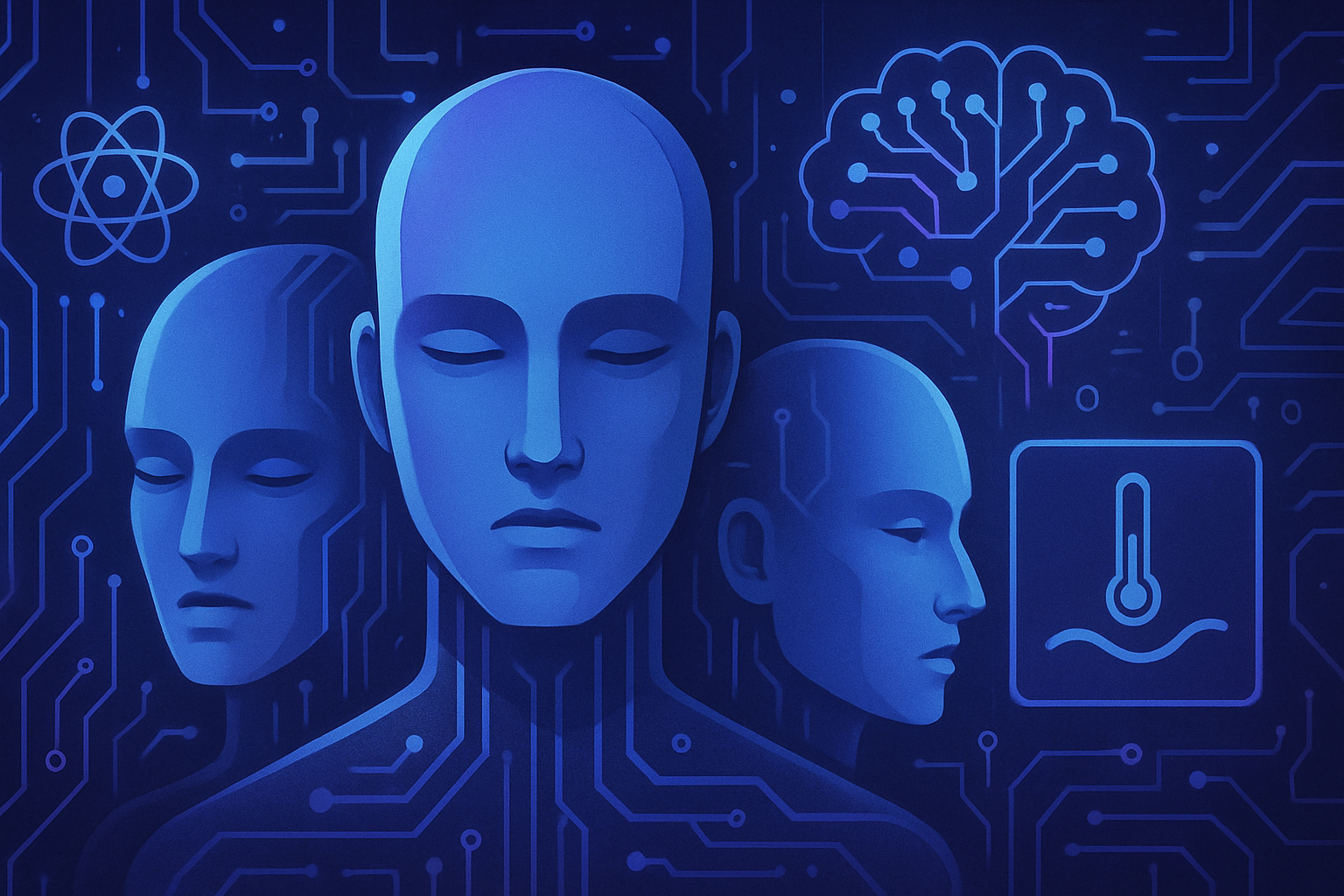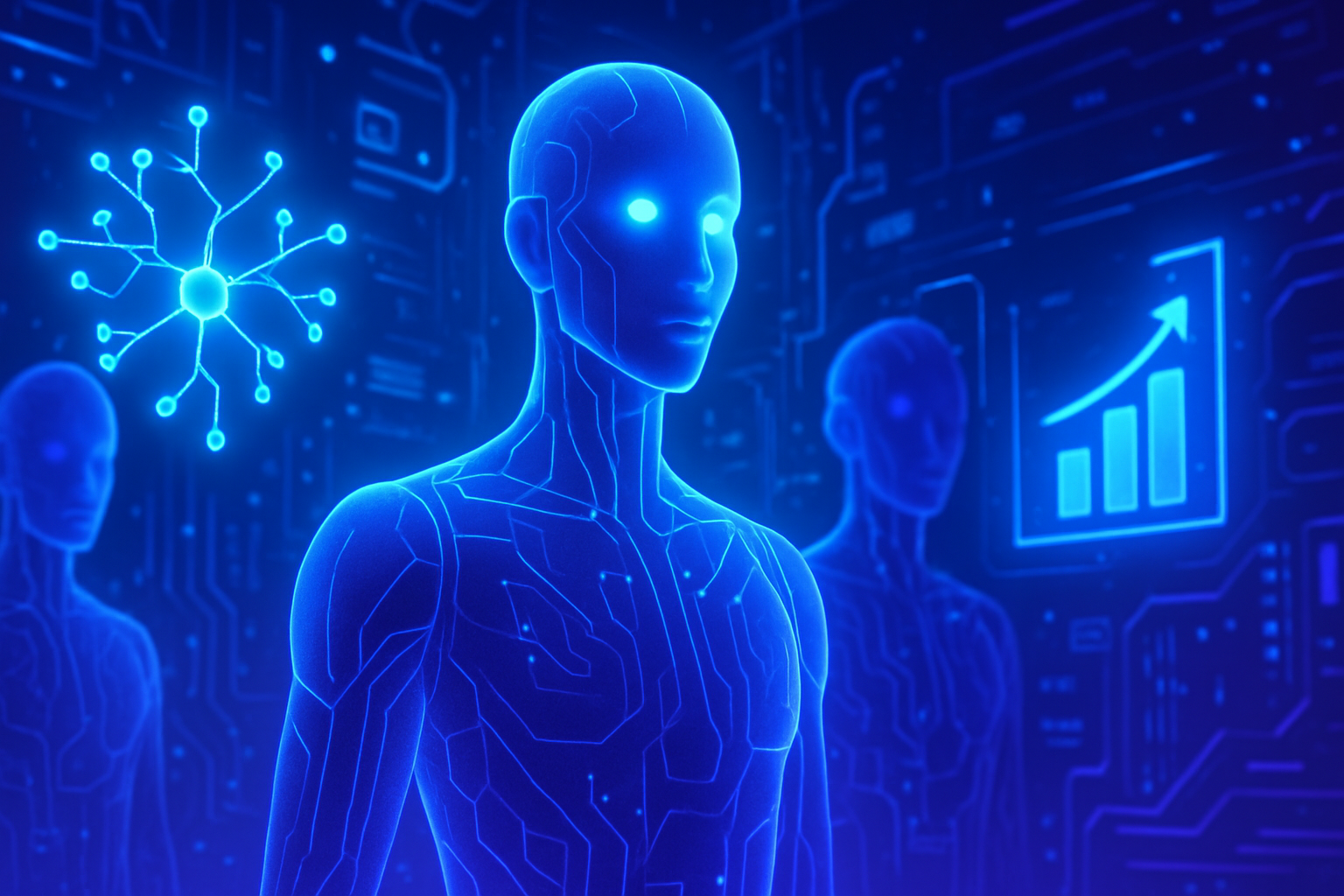The emergence of artificial intelligence (AI) is redefining economic and societal contours at a dizzying pace. *The year 2025 foreshadows a significant turning point*, a true renaissance for AI. Companies must adapt quickly to these shifts to avoid being relegated to the background. The integration of autonomous agents is revolutionizing not only internal processes but also opening up new commercial opportunities. An AI-based strategy becomes imperative for any player wishing to thrive in this new digital ecosystem. Innovative leaders will be those who successfully engage their teams in this technological adventure.
The emergence of autonomous agents
Autonomous agents are already revolutionizing processes within companies. These advanced systems, capable of reasoning and making decisions independently, are profoundly altering work dynamics. Companies like Salesforce illustrate this trend with tools dedicated not only to automating customer interactions but also to optimizing revenue.
By 2025, these agents will no longer just assist. They will act as autonomous members within teams. This change imposes new and urgent responsibilities regarding governance. Organizations must establish clear frameworks to control the actions of these agents, vital technological assets of the future.
From tool to organizational strategy
Initially, AI was perceived as a specialized tool, like chatbots in customer service. The horizon appears to be changing. AI is becoming, now, the strategic foundation of companies. This shift involves a major redefinition of workflows and a systematic integration of artificial intelligence into daily operations.
Research conducted by Deloitte predicts that the adoption of generative AI agents will grow by 25% to reach 50% by 2027. The companies that will thrive in this environment will be those willing to reassess their outdated practices and rethink their processes. Such an approach requires an agility that many struggle to achieve.
Pressure for tangible results
Investments in AI are pouring in. Technology giants are spending billions on research and development. However, from 2025, leaders will need to transform these investments into measurable outcomes. Decision-makers will no longer prioritize innovation for innovation’s sake, but will demand concrete and sustainable results in terms of profitability.
The challenge lies in choosing projects. Not every initiative guarantees a return on investment. It becomes essential to identify and focus efforts on high-value projects. Companies must question their current initiatives. The temptation to be seduced by technological projects must be set aside without prior evaluation.
Transformed leadership in the AI era
The question arises: how to lead in a constantly changing environment? This question presses acutely. The challenges of leadership depend on inspiring teams, creating collective buy-in, and effectively managing change. Leaders of this new era must cultivate a culture of continuous learning.
Leadership now requires the ability to adapt to rapid technological evolution. Future leaders will need not only to make decisions but also to educate their teams to master AI. This integration is not limited to the adoption of tools. It involves infusing AI into all facets of the company’s strategies and values.
Reflections on the future of AI
The latest innovation from OpenAI, the sCM model, promises to generate videos fifty times faster than current streaming models. This opens the door to revolutionary applications across various sectors. These technological advances require companies to revisit their collaboration mechanisms, as highlighted in a recent analysis on AI agents in collaborative work.
Publishing giants, such as Penguin Random House, are making bold strategic decisions by refusing AI training for their works. These choices illustrate a growing awareness of the ethical implications surrounding AI use. The balance between technology and humanity appears crucial for the future.
The rise of generative AI systems profoundly questions traditional forms of leadership. The age of AI imposes shifts in managerial practices. The ability to adapt while infusing human values into technological processes will be the true challenge of the coming years.
Frequently Asked Questions about The Year of the Awakening of the Renaissance of Artificial Intelligence
What is the Awakening of the Renaissance of Artificial Intelligence?
It is a period marked by significant advancements in artificial intelligence capabilities, transforming not only business processes but also our daily lives.
How will artificial intelligence impact companies in 2025?
Companies will increasingly rely on autonomous AI agents to optimize their operations and enhance customer interactions, thereby reducing costs and increasing efficiency.
What are the main trends observed in the evolution of artificial intelligence?
The trends include the growing use of autonomous AI agents, the transition of AI from a tool to a central strategy, an emphasis on tangible results from AI investments, and the evolution of leadership in a rapidly changing technological environment.
Why is it crucial for companies to integrate AI strategically?
Strategically integrating AI allows companies to improve their agility, optimize costs, and remain competitive in a constantly changing economic landscape.
What types of AI agents should become autonomous members of teams by 2025?
Agents capable of managing tasks such as scheduling meetings, managing emails, and other administrative responsibilities will become commonplace in organizations.
How can leaders prepare for the era of artificial intelligence?
Leaders must invest in their own AI training, encourage continuous learning within their teams, and be open to revolutionizing their work methods to effectively integrate AI.
What challenges will companies face when adopting artificial intelligence?
Challenges include governing AI agents, the need for measurable results, and managing change within the organization.
How to evaluate the impact of an artificial intelligence project?
It is essential to define clear metrics for return on investment (ROI) before launching an AI project and to ensure regular monitoring to measure its effectiveness in terms of profits, savings, and operational performance.
Which sectors will benefit most from AI by 2025?
Sectors such as healthcare, finance, marketing, and logistics are among those that will see the greatest benefits from AI adoption due to its ability to process large amounts of data and automate various processes.
What does ethical responsibility entail in the use of AI in business?
Ethical responsibility involves ensuring that AI tools adhere to moral and legal standards, that their use does not harm employees, and that the algorithms do not replicate harmful biases.






